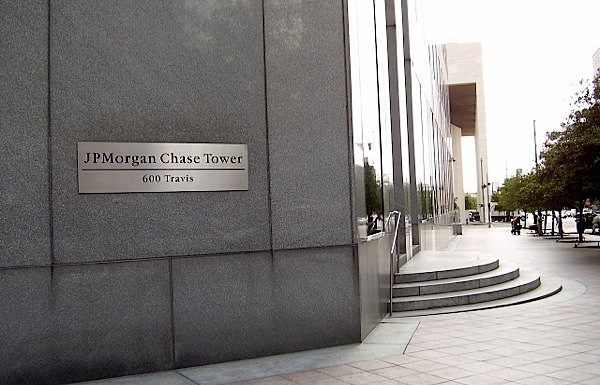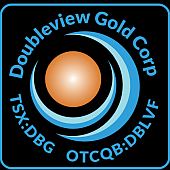 Mining.com – JPMorgan’s gold ‘boss’ led group plot to spoof prices, jury told
Mining.com – JPMorgan’s gold ‘boss’ led group plot to spoof prices, jury told
https://www.mining.com/web/jpmorgans-gold-boss-led-group-plot-to-spoof-prices-jury-told/

Michael Nowak was “the boss” of a plot at JPMorgan Chase & Co. to manipulate gold and silver prices and worked with the top trader and salesman on the bank’s precious metals desk to “spoof” markets with bogus buy and sell orders, a federal prosecutor told jurors in Chicago.
“For years, executives at one of the world’s largest banks conspired to manipulate the markets for precious metals,” Matthew Sullivan, an attorney in the US Department of Justice, said Thursday during closing arguments in the trial of Nowak, Gregg Smith and Jeffrey Ruffo. “All three worked together toward the same goal: earning profits for the precious-metals desk by spoofing.”
Prosecutors are wrapping up the biggest criminal case by the US in its crackdown on market manipulation following the global financial crisis. Nowak and Smith are charged with racketeering conspiracy as well as conspiring to commit price manipulation, wire fraud, commodities fraud and spoofing from 2008 to 2016. Ruffo is charged with racketeering and conspiracy. They face years in prison if convicted.
Over the past three weeks, government witnesses described how Nowak, who ran the desk, and Smith, its chief gold trader, routinely placed huge buy and sell orders they never intended to execute. It was part of their strategy to push prices in the direction that would profit the bank, said two former JPMorgan traders who agreed to cooperate after pleading guilty. Ruffo encouraged the practice to benefit his hedge fund clients, they said.
JPMorgan, one of the most influential banks in the precious-metals market, already has paid $920 million to settle Justice Department spoofing allegations against it.
‘Power and influence’
“The defendants had power and influence, and together they abused their positions and rigged the precious metals markets for their own gain,” Sullivan said. “They did it by spoofing, which put simply is a lie to make money by tricking other people in the market.”
Defense lawyers are scheduled to make their case to jurors later Thursday and on Friday, after which the case will go to the jury. Over the course of the trial, they’ve argued that all the alleged spoof orders were legitimate. They say there are other explanations for entering large orders to buy and sell futures contracts at the same time on behalf of clients or to provide market pricing, not to fool rivals with bogus spoof trades.
Sullivan described Nowak as “the boss” of the operation as managing director of the precious-metals business, overseeing JPMorgan’s trading and vaults around the world. The prosecutor cited several examples of Nowak’s trading records showing he placed big buy or sell orders that were quickly canceled after he executed smaller orders on the opposite side of the market.
Two junior members of the JPMorgan team, Christian Trunz and John Edmonds, testified for the government that this pattern was part of a trading strategy they learned from Nowak and Smith and was a routine way they all operated for years.
“Mr. Trunz and Mr. Edmonds gave you an insider’s account of the criminal activity that took place while they worked side by side with the defendants on the desk, watching and learning from them,” Sullivan told the jury. “They described what they saw and what they heard on the desk.”
Nowak lied to regulators about his trading because he knew his spoofing was wrong, and encouraged Trunz to do the same by not cooperating with prosecutors after Edmonds had agreed to plead guilty, Sullivan said.
“The heat was on,” Sullivan said. “The conspiracy’s secrets were now in the open.”
Trunz had described an encounter with Nowak, who he considered a close friend and mentor, in which the executive “pressured Mr. Trunz” to stick with the false narrative that all their orders were placed with the intent to trade, Sullivan said. Nowak told him, “You’re not going to turn around and plea now, are you?” according to Trunz, who said he interpreted that as a directive to lie.
The government also presented trading records for Smith, who was relied upon to handle most of the big buy and sell orders from JPMorgan clients Ruffo dealt with, including Moore Capital Management and Tudor Capital Corp. Trunz had described Smith as an expert spoofer, and that Ruffo encouraged him to use the tactic to keep his clients happy.
“They did this to get better prices for Jeff Ruffo’s big hedge fund clients,” Sullivan said. “Better prices meant more money for the desk and for themselves.”
The case is US v. Smith et al, 19-cr-00669, US District Court, Northern District of Illinois (Chicago)
(By Joe Deaux and Tom Schoenberg)
























